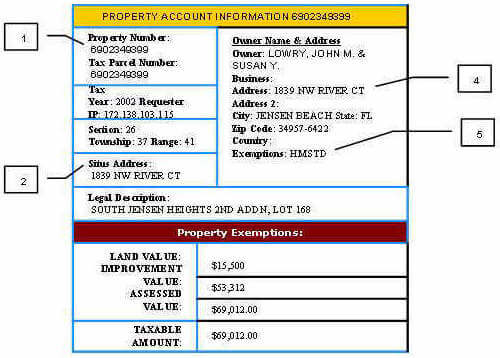All Categories
Featured
Table of Contents
In several instances, you will need to outbid various other capitalists by supplying to pay a higher premium (tax lien investing). This premium is usually much less than the actual quantity of taxes owed, however it's up to the investor to determine if the danger is worth the collection incentive. In most areas, building tax obligations are around one percent of the home's worth

Tax lien financiers make their cash on the passion settlements they accumulate when the homeowner repays the taxes they owe. In some places, these interest rates are as high as 18 percent, which is more than the average credit history card rate of interest. Building proprietors can pay what they owe simultaneously, or they can go on a layaway plan ranging from one to three years.
Tax Lien Foreclosure Process
In the above instance, a person with a superior tax financial debt of $4k (2 years of back tax obligations) would be giving a tax obligation lien owner with possibly up to $720 in passion payments, dealing with the 18 percent rate of interest rate we pointed out earlier. Among the best advantages to tax obligation lien capitalists is the prospective to get a brand-new residential or commercial property for their actual estate portfolio, without having to pay its market price.

This is a strategy that lots of real estate financiers use to obtain undervalued buildings or distressed buildings. And if the homeowner does pay their financial debts, they will still make a profit in the kind of interest. It's a win-win circumstance for the tax lien investor. There are some disadvantages to tax lien investing.
Once the lien is paid, the financier needs to proceed and seek a brand-new financial investment. Of program, if the building proprietor is still in default, the lien owner will get the property, which can become a reoccuring resource of revenue. A person that buys a tax lien might find themselves knotted with various other liens on the residential or commercial property, specifically if they wind up claiming the building in the event that the financial debt goes unpaid.
This can lead to lots of lawful fights, which is why it's crucial to function with attorneys and tax advisors who comprehend things like deed vs title. and can aid with carrying out due diligence on a home. The regulations around tax lien investing (and associated issueslike foreclosing on renters) are not consistent throughout states that use investors the capability to join a tax obligation lien sale.
Considered that tax obligation liens are typically sold at public auction, completing bidders will certainly bid up the costs and bid down the rate of interest that can be accumulated on the overdue taxes. The winner of the auction will certainly be the real estate financier who is paying the highest costs and getting the most affordable rates of interest in return.
Tax Lien Foreclosure Process
In this capillary, tax obligation lien investing is a little extra sport-like than traditional easy means of earning revenue. The very first thing you'll wish to do is obtain aware of the area you're thinking about in regards to the realty market. Remember that one upside of coming to be a lienholder is collecting the home if the debt goes unpaid, so you will certainly require to know where that property is.
Once you have actually determined these details out, you need to contact your regional county treasurer's office to figure out when and where the next tax obligation lien auction is being held. These auctions are often kept in person, but in today's day and age, a number of have transitioned to on-line venues.

A lot of regional documents publish these listings yearly or semiannually. Bear in mind that residential property taxes are generally one percent of the property value, but unpaid tax obligations gathering over several years might be a more sizable amount.
Tax Lien Investing Ny
it has the included perk of obtaining the residential or commercial property if the debt continues to be unpaid. While it can be a rewarding possibility for the capitalist, it does need some tactical footwork. Renters and homeowner do have lawful defenses that make tax obligation lien investing a much more involved process than just bidding to purchase a debt and waiting to gather the repayment.
Purchasing tax obligation liens involves buying a legal case on a property as a result of unsettled real estate tax. This approach of investing has gotten appeal due to its capacity for high returns with relatively low initial capital. Tax liens are usually cost public auctions, and the process can differ depending on the area.

Capitalists seek out tax obligation liens for numerous reasons: 1. Low Preliminary Financial investment: Tax obligation lien spending commonly requires a tiny quantity of money to start, making it accessible to a vast array of investors.
What Is Tax Lien Investing
Residential or commercial property Procurement: If the building owner fails to pay the past due tax obligations and rate of interest within the redemption duration, the investor may have the right to foreclose and obtain the home. When investors purchase a tax lien, they pay the overdue tax obligations on a building and receive a tax lien certificate.
There are 2 potential end results: 1. Settlement by the Homeowner: The homeowner repays the past due tax obligations plus rate of interest within a given duration, and the investor receives the repayment with interest. This is the most typical end result. 2. Foreclosure: If the homeowner does not pay off the taxes within the redemption duration, the capitalist can start repossession process to get the residential or commercial property.
The self-directed IRA acquisitions the lien certificate and pays linked costs. Tax obligation Lien: The federal government offers a lien on the residential property due to unpaid taxes.
How To Invest In Tax Lien Certificates
Tax Deed: The government offers the actual deed to the building at auction. The winning bidder obtains ownership of the property right away. Some states utilize a hybrid method, where a lien may lead to an action sale otherwise paid back. According to the National Tax Obligation Lien Organization (NTLA), 36 states and 2,500 territories within the United States permit the sale of tax obligation liens, while only 31 states allow tax act sales.
Latest Posts
Tax Delinquent Properties Near Me
Do I Have To Pay Taxes On My Foreclosed Home
Tax Seized Properties